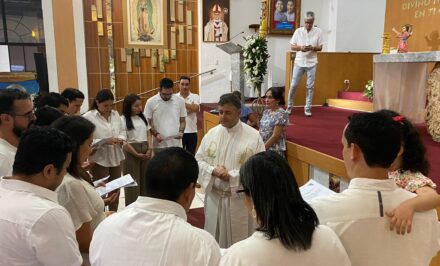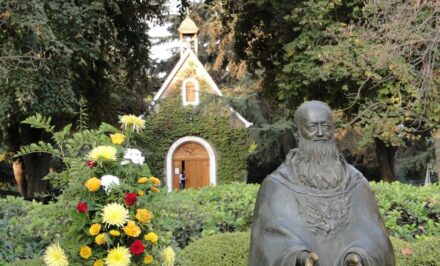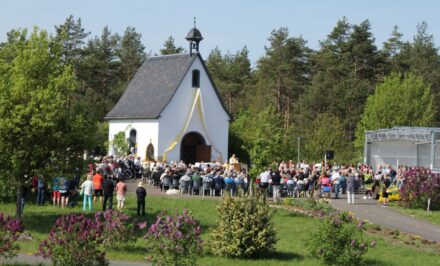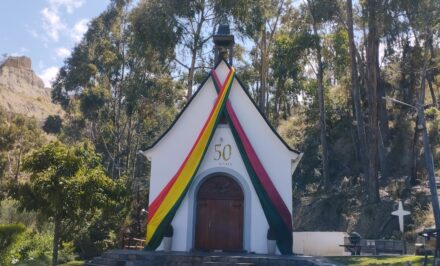 ARGENTINA, Jorge Benedetti. The commotion caused by the resignation of Pope Benedict XVI and the election of a Pope from the confines of the American continent seems to continue within Catholic perimeters and in worldwide public opinion.
ARGENTINA, Jorge Benedetti. The commotion caused by the resignation of Pope Benedict XVI and the election of a Pope from the confines of the American continent seems to continue within Catholic perimeters and in worldwide public opinion.
![]()
When a noted journalist and collaborator of Pope Benedict asked him about his manifestations regarding a time of change in the Church – if he was the last of the old or the first of the new – his answer was both. In this way, he made it clear that the Church was in a time “of hinge” where we would pass from an old era to another considerably new era. To complete this sensation, the gestures and words of the new Pontiff encourage changes with much hope.
A Pope adopting the name Francis in homage to the one who faced the Vatican hierarchy and who gave his life in service to the poor becomes a valuable deed which is confirmed with the desire of his pontificate: “I would like a poor Church and for the poor.”
But on the other hand – and facing the oligarchies which govern the world today – Francis expresses in his first words, his profound attachment with “the people” as the main actors and social and religious subjects, to the point that – changing all antecedents – he asks for their blessings prior to imparting his blessing to them.
The concept “people of God” has a profound theological meaning, in addition to a spiritual and political one. In this plethora of objects, the concept “people/community,” as a collection of organized men, indoctrinated and hopeful, has its manifestation in the Vatican thinking of the post-war period and in its condemnation of fascist overcrowding. In addition it has rapidly been adopted by the Latin American popular political thinking, in doctrine, which is disqualified as “populist” not only by Marxism as by European liberalism and its dependent variants.
The new Bishop of Rome has shown throughout his personal history a profound appreciation for what is popular, expressed not only from the religious aspect but from the social-political as well. This ratifies that times of change are beginning for the Church and for humanity as well.
The world we knew stemming from the European post-war era – which counted on the participation of the USA and several nations outside the old continent – we can say has ceased to exist.
The two-headed management of the planet, which took form at Yalta and Postdam, disappeared with the fall of the Berlin Wall and in that instant, while some believed in the definitive establishment of a single-pole world, where the “singular thought” would rule, others – more clearly – highlighted that “the wall had fallen on both sides.”
Today there is no doubt that the dream of a single-pole world lasted for an instant in the life and history of the planet, and that “the South” also exists, not because of the song of a Catalonian, but because of the decadence of “the North” as a society, as culture (and inclusive in its economic potential). It is evident that it is accompanied with the emerging of multiple focal points of development in the southern part of the planet that are expressed with greater vitality than that of a society that not only decreases in population but also does it from the point of view of values and thinking.
A well-remembered Argentinean thinker [1], would declare that with the arrival of Columbus to America, the world had discovered itself as such, since the existing parts, which did not know each other, had discovered each other mutually and that it was clearly probable that from the last known point on the planet, universalism and all of humanity could be better appreciated from this aspect. By chance, her posthumous book expressing these concepts has a prologue by Cardinal Jorge Mario Bergoglio.
It would be worth our while to ask ourselves, did the Church elect a Pope from the ends of the earth, or simply and from its experience with more than 2,000 years of existence, adapted to the “new world” which is arriving, replacing another old, decadent, and not capable of being saved in its spiritual state, more than material.
If we observe the great empires throughout history – from the Roman to the Soviet – they were not conquered “from the outside,” but collapsed from within because of their corruption, rigidity or because of their lacking a vital spirit.
We have often affirmed that the European Church had no longer been a missionary church, which is how it saw itself, its weaknesses, limitations, and thought – from her empty temples – the exterior world “ala defensive,” while the Church in Asia, Africa, Oceania and America – with its considerable differences of all types – showed, even by different causes, a vitality often counterbalanced by the European Church.
It is not by chance that the Marian cultural data and the popular “baroque” American religiosity were almost scorned by the Catholic European intellectual elite (or pro-European), being devalued because of considering them “populist,” a term and thought by which it has disqualified what does not fit into the old and hardened molds of European thinking, in the political as in the cultural, social or religious.
Nevertheless and in spite of the more than 500 years in which “the North” subjugated (and in certain aspects continues until today) the communities of Latin America, this part of the end of “its world” has been expressing forms much more vital for living together, organization of its societies and of forms of government and popular and inclusive participation of religious practices.
In this sense, there is a particular aspect that is worth highlighting. In biological sciences, the “intersection” of races or varieties is valued as ways to improve determined animal and vegetable species.
If we speak of men and peoples, European and North American racism has been condemned in many conferences and empty documents, but not in conscience and in legislation and much less in the everyday practice of these communities. The colonizers of the planet, those who have subjugated and spurned the three quarters of the planet’s humanity, have done it – and intend to continue doing it – are supported by a very profound spirit of racism.
In the meantime, Latin America, or perhaps to be more precise, “America Indo – Afro – Latin” has been a “melting pot of races” and the point of unity for all cultures of the universe. It is in these lands where the first inhabitants came from the East and then with the arrival of Columbus – from the European and African West – to complete the multicultural aspect with the presence of strong migratory currents from Eastern Europe, the nearby East and other regions of the planet during the past century.
This process “of cross breeding” has given as fruitfulness a new race “cold/insensitive,” where – as in this rock – veins/seams/grains can be observed, but these are fused in an inseparable form.
Cardinal Bergoglio, in repeated opportunities, has stressed the character and positive value of crossbreeding in our American culture.
Another aspect of his thinking can be seen when he affirms that “time is superior to space, unity is superior to conflict, reality is superior to the idea, all is superior to the part” [2], to re-vindicate then the search for Utopia, not as a way out of reality, but as a final cause which attracts to procure the common good.
Upon affirming that reality (the only truth) is superior to the idea, he condemns the empty discourse that swindles the facts. On the contrary, he structures in a hierarchical manner the gestures, which have remained confirmed in the first days of his pontificate.
Also in the same sense, he condemns “spherical” globalization where all points are equal, forming as a model the “polyhedron” which is the union of multiple particularities, affirming in this way the principle of subsidizing (“the union of the peoples/communities who in the universal order preserve their peculiarity as a people/community” [3]).
We cannot keep from highlighting his role in the writing of the last document of the Latin American Episcopate which met in Aparecida (Brazil), where the centrality of the “preferential option for the poor” was manifested, along with the need for a continental unity that exceeds a mere economic integration, affirming the profound unity of the peoples/communities of the continent.
In the same document, included is a hard criticism of the multilateral credit organizations that have favored the absurd accumulation of wealth of financial capitalism that has gravely acted against the universal destiny of goods. The condemnation is extended to the actions of the great corporations, which at the same time highlighted the role of the communities and men of the continent as actors of the reality to which humanity aspires.
I never had timely dealings with Jorge Bergoglio, and I was not his friend, but the previous year, upon visiting him with two companions, he bade us farewell saying “Pray for me.” We imagined he was concerned about a personal situation. Today, we understand that his concerns were for the Church and all of humanity.
The arrival of a new Pontiff to the Catholic Church expresses a world in change and a hope for the people, not only for those who emerge at the present, but for all communities of the entire planet. The Church wants to return to being that of the earliest times, the peoples’ desire that this is translated into greater justice, dignity and liberty. May Providence will that all men help to make it possible.
Jorge Benedetti
Catholic, Latin American and member of the Thomas More Group
San Martín, province of Buenos Aires, March 19, 2013













